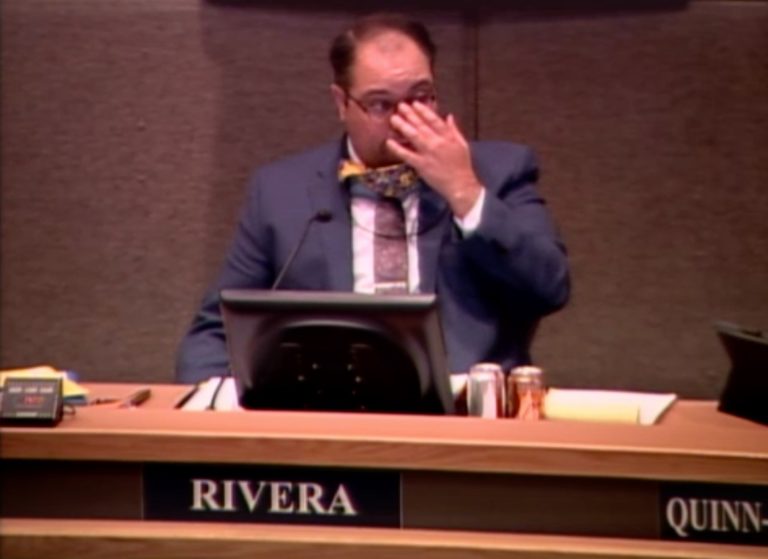By DAVID IGNELL
Dear Gov. Mike Dunleavy and Tammie Wilson:
What have you been doing these past two weeks that you think is more important than saving the life of a 15-year-old kid? Please respond.
The kid I’m writing you about is “George,” who was featured in my article two weeks ago about the Office of Children’s Services. He is the kid who your OCS kidnapped, along with his four siblings, from their loving home in Mat-Su Valley almost two years ago. He’s the kid who was then separated from his siblings and has bounced around from foster home to foster home while your OCS harassed his mother with its well-funded battalion of lawyers, hired “experts,” and “protective service specialists” masquerading as licensed social workers.
George is the kid with special needs who was miraculously found sitting on the JBER bench along the Glenn Highway, the boy with a rheumatic leg who had walked 20 miles to get there and still had over 35 miles to go. Yeah, that kid – the one that never would have made it.
Well, I just found out that George ran away again yesterday, March 2.
He left his latest foster home in the Valley at 5 am. He was upset to find out that your latest parental choice had disposed of some of his clothes he left lying around on his bedroom floor. The new foster parents thought they were teaching George an important lesson, but they don’t understand fetal alcohol syndrome kids. He grabbed a coat and a backpack and headed out the door.
It was 12 degrees outside. George took on the cold and snow wearing tennis shoes and cotton socks.
George headed toward his school, 10 miles away. Along the way he observed a dead moose, killed by a passing train. When he arrived at the school, officials put him alone in a room. He soon left. Only the cameras saw him leave.
This time around, at least OCS called his mother to let her know George was missing. AK Mom went out looking for George. She went inside a big store he was known to frequent. George noticed her car in the parking lot and went inside. He found her.
AK Mom had to return her son to OCS. George spent last night in a different foster “home.” Tonight, he is supposed to be transferred to a new “home.” At an OCS meeting this morning, no one even knew where that would be.
This new “home” will be the 18th one to which George has been transferred by OCS since they kidnapped him. Stop kidding yourself. You’re no longer putting George into homes; let’s call them for what they really are: temporary storage facilities, just like you did with his brother “Lawrence” last summer.
Anyone reading this article with a heart, soul, or conscience knows there’s only one place where George belongs tonight. Home. With his mother. Gov. Mike Dunleavy and Tammie Wilson, what are you waiting for?
By the way, George is flunking his classes these days. He wasn’t before he was kidnapped. Why do you persist in trying to set him up for failure later in life? Do you want George to become a lifelong ward of the state? Is there profit in that?
Stop this madness now. Return George and his four other siblings to their mother now.
After the re-united family has a chance to recover, ask AK Mom for advice in establishing programs at OCS that will actually help our children born with fetal alcohol syndrome. AK Mom knows what she’s doing. Your people don’t. How many more of our children will you allow OCS to ruin?
David Ignell was born and raised in Juneau, where he currently resides. He holds a law degree from University of San Diego and formerly practiced as a licensed attorney in California. He has experience as a volunteer analyst for the California Innocence Project, and is currently a forensic journalist and author of a recent book on the Alaska Grand Jury.








